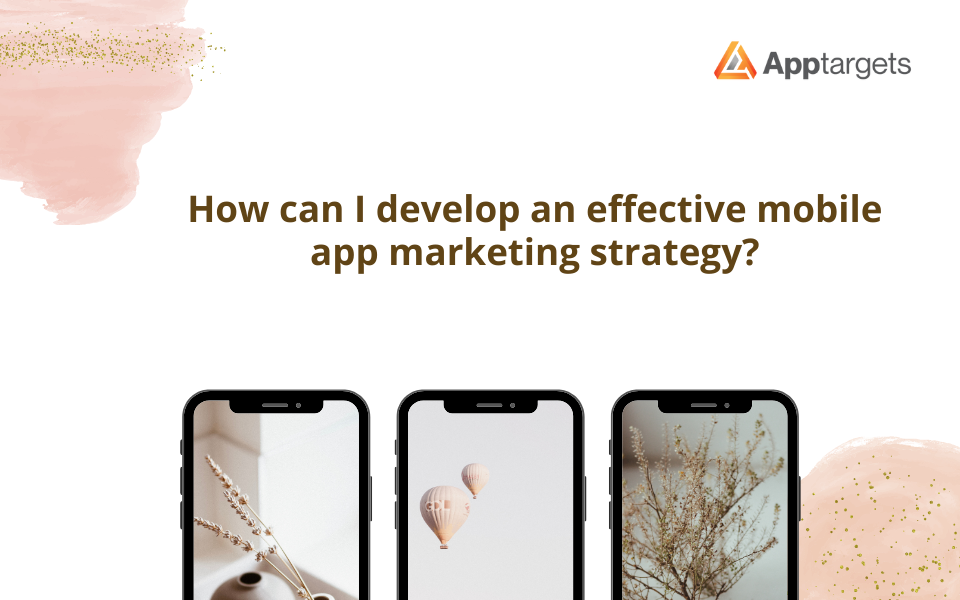How to Develop Successful Mobile App Marketing Strategy
A solid marketing plan is essential for the success of your mobile app in the current digital era. It's crucial to stand out and efficiently reach your target audience given the millions of apps that are accessible in app stores. In this post, we'll examine the essential elements for creating a fruitful mobile app marketing strategy.
Understanding Your Target Audience
To develop a successful marketing strategy understanding your target demographic is essential. To properly address them with your communications and marketing activities, learn about their preferences, requirements, and behaviors.
Conducting Market Research
To understand your rivals, market trends, and customer expectations, thorough market research is vital. This knowledge will help you position your app uniquely and identify opportunities for growth.
Defining Your Unique Selling Proposition (USP)
What makes your app unique? Define your unique selling proposition to differentiate yourself from the competition. Highlight the features or benefits that set your app apart and make it compelling to your target audience.
Setting Clear Goals and Objectives
Clearly define your goals and objectives for your mobile app marketing strategy. Whether it's acquiring a specific number of downloads, increasing user engagement, or generating revenue, setting clear goals will guide your marketing efforts.
App Store Optimization (ASO)
Optimize your app's presence in app stores through app store optimization (ASO). This involves optimizing your app's title, keywords, and description to improve its visibility and discoverability in app store search results.
Creating Compelling App Store Descriptions
Craft compelling and informative app store descriptions that effectively communicate the value and benefits of your app. Use persuasive language, highlight key features, and include screenshots or videos to engage potential users.
Implementing Social Media Marketing
Leverage social media platforms to create brand awareness, engage with your target audience, and drive app downloads. Create a social media plan with frequent content updates, user-generated campaigns, and influencer partnerships.
Utilizing Content Marketing
Create valuable and relevant content that showcases your expertise and provides value to your target audience. To promote your app as a reliable resource, create a content marketing strategy that includes blog articles, videos, and infographics.
Engaging with User Reviews and Feedback
Actively engage with user reviews and feedback. Respond promptly, address concerns, and show that you value user input. This will help build a positive reputation and foster user loyalty.
Implementing App Analytics
Integrate robust app analytics tools to track user behavior, measure app performance, and gain insights into user engagement. You may optimize your marketing plan and make data-driven decisions with the aid of analysis.
Monitoring and Refining Your Strategy
Keep an eye on the effectiveness of your marketing plan and, depending on statistics and customer feedback, make any necessary revisions. Stay updated with market trends and continuously refine your approach to maximize results.
Measuring Key Performance Indicators (KPIs)
Choose key performance indicators (KPIs) such as app downloads, user engagement, retention rates, and income earned that are in line with your objectives. Track and measure these metrics to evaluate the effectiveness of your marketing efforts.
A detailed grasp of your target market, thorough market research, and a complete strategy that takes into account several marketing channels are necessary for establishing a successful mobile app marketing strategy. By implementing the outlined steps and continuously refining your strategy, you can increase your app's visibility, attract your desired audience, and drive success in the competitive mobile app market.
